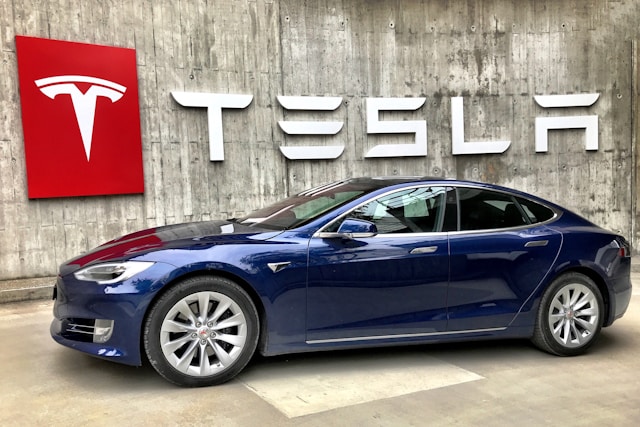The automotive industry is at a crossroads, with electric vehicles (EVs) challenging the dominance of traditional gasoline-powered cars. Among EV manufacturers, Tesla has emerged as the leader, pushing the boundaries of technology, sustainability, and performance. But how does a Tesla compare to traditional internal combustion engine (ICE) vehicles? Let’s break down the key differences and why Tesla EVs are shaping the future of transportation.
1. Performance and Driving Experience
Tesla EVs offer a superior driving experience compared to traditional gasoline cars.
- Instant Torque: Tesla vehicles deliver instant acceleration with no lag, unlike gasoline engines that require time to build RPM.
- Faster Acceleration: The Tesla Model S Plaid goes from 0-60 mph in just 1.99 seconds, making it one of the fastest production cars in the world.
- Smooth and Quiet Ride: With no engine noise, Tesla EVs provide a silent, smooth, and futuristic driving experience.
2. Cost of Ownership: Tesla vs. Gasoline Cars
While the initial price of a Tesla may seem high, the long-term cost savings are significant.
2.1 Fuel vs. Electricity Costs
- Gasoline prices fluctuate, and owning a fuel-powered car can be costly over time.
- Tesla vehicles run on electricity, which is much cheaper per mile than gasoline.
- Home charging with solar panels can make Tesla’s running costs even lower.
2.2 Maintenance Costs
Tesla EVs have fewer moving parts than traditional cars, reducing maintenance expenses.
- No oil changes, spark plugs, or transmission repairs.
- Regenerative braking extends the life of brake pads.
- Over-the-air (OTA) software updates enhance performance without needing dealership visits.
3. Environmental Impact: EVs Are the Greener Choice
One of the biggest advantages of Tesla cars is their positive environmental impact.
- Zero Emissions: Tesla vehicles produce no tailpipe emissions, reducing air pollution.
- Sustainable Energy: Tesla promotes renewable energy solutions with solar panels and battery storage options.
- Lower Carbon Footprint: Even when factoring in battery production, Tesla EVs have a smaller carbon footprint than gasoline-powered cars over their lifetime.
4. Technology and Innovation
Tesla is known for its cutting-edge technology, outpacing traditional automakers.
4.1 Autopilot and Full Self-Driving (FSD)
- Tesla’s Autopilot enables lane-keeping, adaptive cruise control, and automatic lane changes.
- Full Self-Driving (FSD) aims for fully autonomous capabilities, making Tesla a pioneer in AI-driven mobility.
4.2 Over-the-Air (OTA) Software Updates
- Tesla can remotely update its vehicles, adding new features and improving efficiency.
- Traditional automakers require physical service visits for software upgrades.
4.3 Infotainment and Connectivity
- Tesla offers a massive touchscreen interface, advanced voice commands, and built-in entertainment options (Netflix, YouTube, and gaming).
- Traditional cars often rely on outdated infotainment systems.
5. Range and Charging Infrastructure
One of the main concerns for potential EV buyers is range anxiety. However, Tesla has addressed this with long-range models and an extensive charging network.
- Tesla Model S Long Range: Over 400 miles per charge, surpassing many EV competitors.
- Supercharger Network: Tesla operates the largest fast-charging network, allowing owners to recharge up to 80% in 30 minutes.
- Home Charging: Tesla’s Wall Connector enables convenient overnight charging at home.
6. The Future of Tesla and EVs
Traditional automakers are shifting toward electric models, but Tesla remains ahead in innovation and execution. The upcoming Tesla Cybertruck, Roadster, and next-generation battery technology will further push the boundaries of EV performance and affordability.
Conclusion
Tesla has redefined the auto industry by proving that electric vehicles can outperform traditional gasoline cars in almost every aspect—from performance and efficiency to technology and sustainability. As the world moves toward a greener future, Tesla’s advancements are paving the way for a complete transition to electric mobility. The future belongs to EVs, and Tesla is leading the charge.


